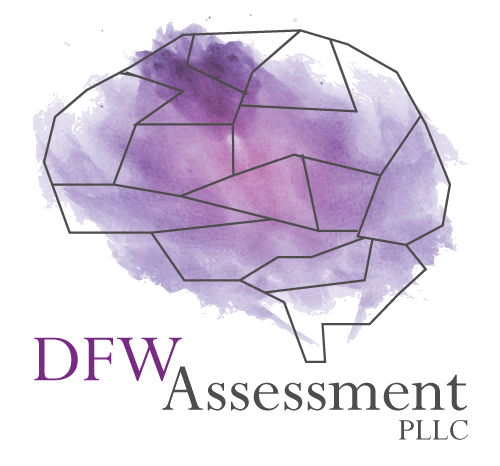Online Autism Spectrum Disorder Assessment for Dallas-Fort Worth Metroplex Toddlers and Young Children
DFW Assessment provides diagnostic testing for kids and adults throughout the Dallas-Fort Worth Metroplex, including research supported assessments to answer diagnostic questions related to Autism Spectrum Disorder (ASD). ASD, as the name suggests, is a spectrum of conditions, and each person expresses and experiences this developmental difference in unique ways. For this reason, it’s extremely important for our clinicians to complete an evaluative assessment, offer an accurate diagnosis, and create a recommended treatment plan in the early stages of childhood development. In most cases, parents bring their children to see us after being referred by a pediatrician during a regular exam between the ages of 18 and 24 months. When you make the decision to bring your child to see us for ASD assessment, the first thing we want you to know is simple – it’s going to be okay. Testing for any condition gives you the knowledge and understanding you need to provide the best support for your child, and giving parents the necessary information to help their kids thrive is our top priority.
During the COVID-19 pandemic, our practice has been tasked with finding ways to continue offering services for our clients while visiting our office is not a safe option. Suddenly, many parents and kids have a wealth of time on their hands for necessary testing, but we aren’t able to see them safely in our office locations. In the wake of this challenging situation, Dr. Sanders received additional training to offer specific assessments using a telehealth (online video appointment) platform to conduct virtual testing sessions. You can learn more about the process for using our telehealth platform for ASD testing on this page or by contacting DFW Assessment.
Who Can Receive Online ASD Testing?
In this unusual time, DFW Assessment is offering ASD assessment for children 18 months to 5 years through a combination of video conferencing, interview with parents, and rating scales completed by parents (and, if possible, educators). If you’re worried and your child doesn’t fall within this age range, please don’t hesitate to reach out. We may be able to provide telehealth assessments to other individuals on a case by case basis.
How Does Online ASD Testing Work?
We do our utmost to maintain the same high clinical standards for evaluation that are present in our office during online assessments. To do so, you may need to take a few extra steps to get yourself, your home, and your child ready for the virtual session. Below, we’ve outlined the basic process from start to finish, but please don’t hesitate to reach out if you have questions.
Preparing for a Telehealth Appointment
- Take a look at the IntakeQ instructions provided by your clinician via email. IntakeQ is our video session platform, and we want to make sure you feel confident using this system and that it will work well before we get started.
- Choose a device (phone, tablet, laptop) to conduct the session. Any device with a microphone, camera, and speakers will work.
- Pick your room wisely. You’ll need space to play with your child, so the clinician can observe these interactions. You want minimal distractions (we know it’s not possible to avoid all distractions and that’s okay) and enough room to move around.
- Bring some toys to the room you’ve chosen for your session. You can use things like shape sorters, musical toys, puzzles, balls, etc. Electronic devices are discouraged as play options during the assessment.
- Choose one of your child’s favorite snacks and have it ready in a clear container.
During the Telehealth Assessment
- We’ll start by simply talking for a bit about your child. We’ll discuss your child’s medical and development history as well as asking some questions about why you scheduled the assessment. You will have already completed an intake developmental history form through IntakeQ.
- Next, we will ask you to perform some activities with your child. Each activity is designed to show the clinician how your child communicates, engages with others, and plays. These activities might not be something you’re used to or may even feel a little silly, and that’s okay.
- Throughout the process, we will ask you to use certain words and make specific movements, so we can observe your child’s responses. If we have difficulty seeing or hearing the interactions, we may ask you to describe them to us.
After Your Session
After your virtual ASD assessment session, the clinician will review notes, rating scales, and any information you provided prior to our meeting about your child. Using standardized assessment rubrics, we will deliver a report with diagnostic information as well as recommendations for ongoing support. There will be a follow up call to discuss the assessment report and recommendations.
If you are looking for more about autism testing, or in person testing, please click here.
